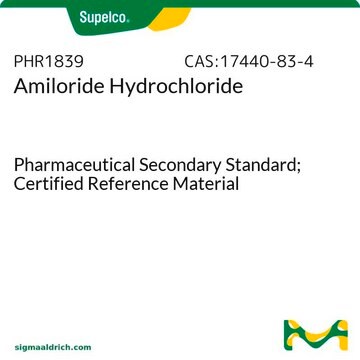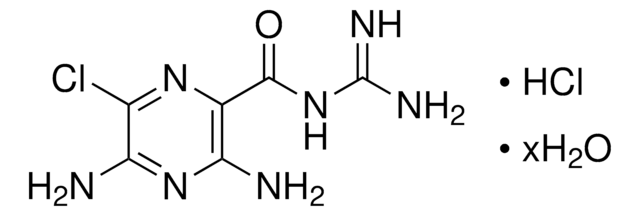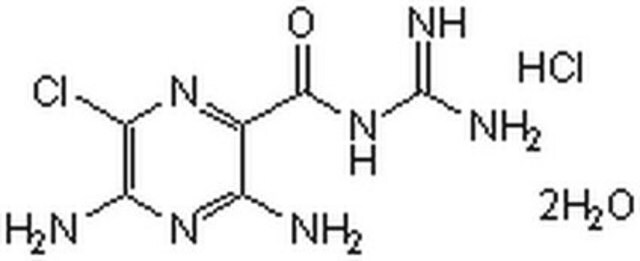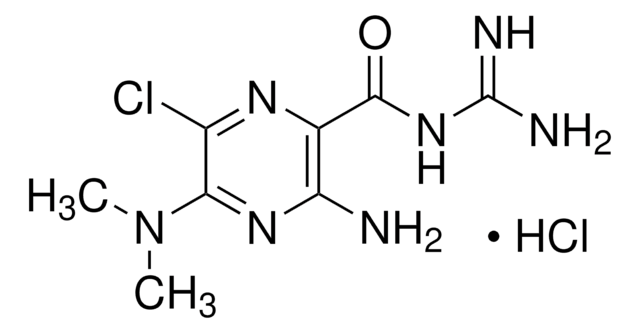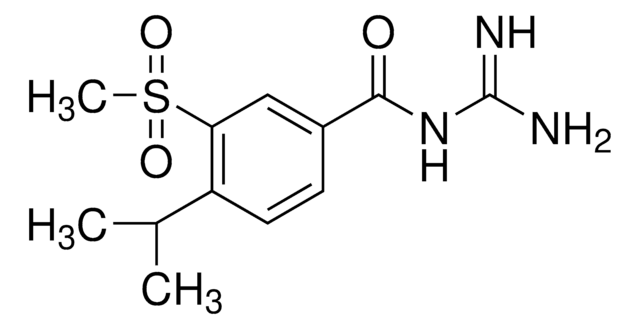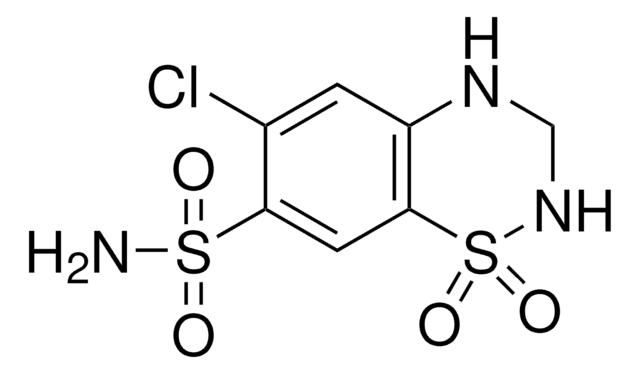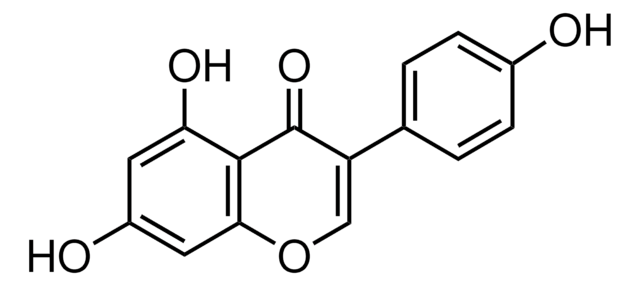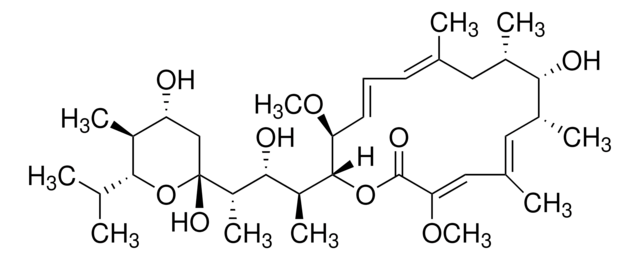1019701
USP
Amiloride hydrochloride
United States Pharmacopeia (USP) Reference Standard
Synonym(s):
Amiloride hydrochloride dihydrate, N-Amidino-3,5-diamino-6-chloropyrazinecarboxamide hydrochloride dihydrate
About This Item
Recommended Products
grade
pharmaceutical primary standard
API family
amiloride
manufacturer/tradename
USP
application(s)
pharmaceutical (small molecule)
format
neat
SMILES string
Clc1nc(c(nc1N)N)C(=O)N\C(=N\[H])\N.Cl.O.O
InChI
1S/C6H8ClN7O.ClH.2H2O/c7-2-4(9)13-3(8)1(12-2)5(15)14-6(10)11;;;/h(H4,8,9,13)(H4,10,11,14,15);1H;2*1H2
InChI key
LTKVFMLMEYCWMK-UHFFFAOYSA-N
Looking for similar products? Visit Product Comparison Guide
General description
Application
- Amiloride Hydrochloride and Hydrochlorothiazide Tablets
- Amiloride Hydrochloride Tablets
Analysis Note
Other Notes
related product
Storage Class Code
11 - Combustible Solids
WGK
WGK 3
Flash Point(F)
Not applicable
Flash Point(C)
Not applicable
Choose from one of the most recent versions:
Certificates of Analysis (COA)
Sorry, we don't have COAs for this product available online at this time.
If you need assistance, please contact Customer Support.
Already Own This Product?
Find documentation for the products that you have recently purchased in the Document Library.
Customers Also Viewed
Our team of scientists has experience in all areas of research including Life Science, Material Science, Chemical Synthesis, Chromatography, Analytical and many others.
Contact Technical Service